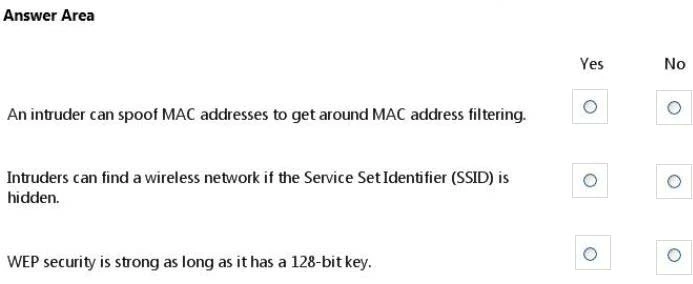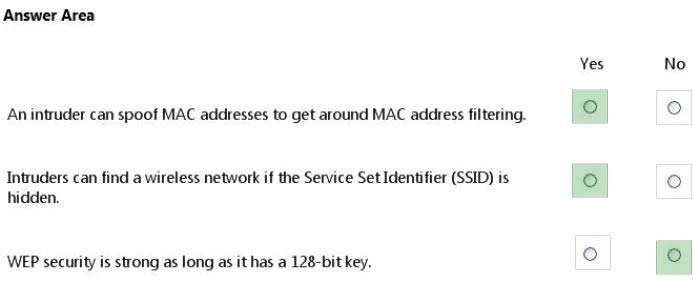Network Access Protection (NAP) is designed to enforce health requirements for computers that attempt to join a network. It ensures that only systems that comply with the predetermined health policies, such as having up-to-date antivirus software and operating system patches, can access the network. Therefore, the primary purpose of NAP is to prevent non-compliant systems from connecting to a network.
Community votes
No votes yet
What should you do?
To make your computer resistant to online hackers and malicious software, you should turn on Windows Firewall. A firewall helps to prevent unauthorized access to your computer by monitoring and controlling incoming and outgoing network traffic based on security rules. While anti-virus software is important for detecting and removing malicious software, a firewall provides an essential layer of defense against potential online threats that may try to exploit open ports and network vulnerabilities.
Community votes
No votes yet
For each of the following statements, select Yes if the statement is true. Otherwise, select No. Each correct selection is worth one point.
Hot Area:


Community votes
No votes yet
The series of characters must meet the following requirements:
✑ Contains more than 15 characters
✑ Contains at least one letter
✑ Contains at least one number
✑ Contains at least one symbol
Which security technology meets these requirements?
WPA2 PSK (Wi-Fi Protected Access 2 with Pre-Shared Key) is a security technology that allows users to connect to the wireless network using a passphrase. This passphrase can be configured to meet the specific security requirements such as containing more than 15 characters, at least one letter, one number, and one symbol. Therefore, WPA2 PSK is the appropriate choice for your company's wireless network access security.
Community votes
No votes yet
How should you secure these passwords?
To secure your passwords, you should save them to an encrypted file. This ensures that even if unauthorized individuals gain access to the file, they would not be able to read the passwords without the proper decryption key. Saving passwords in plain text, using browser password managers, or reusing the same password are not secure practices as they pose significant security risks.
Community votes
No votes yet